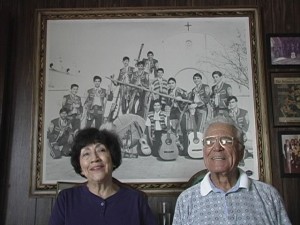On the value of mariachi parents
The recent passing of Leo Carrillo set me thinking again about how important parents are in youth mariachi and folklorico programs.
The sacrifices they make are countered by the joy that seeing their children fall in love with the music and dance of their culture brings.
I remember seeing Leo at Symphony Hall in Boston on the night Mariachi Cobre, with his sons Steve and Randy, made its debut with the Boston Pops. It was a moment that made both the musicians in the orchestra and the audience sit up and take notice that something extraordinary was coming to the symphonic world.
Leo was beaming. I doubt he was thinking of the many times he drove those kids to practice, and the numerous occasions when he and his wife, Emma, would chaperon out-of-town gigs. But that moment would never have happened without the many things they did for their boys.
Emma Carrillo once told me about how she would listen to Mariachi Vargas’ records and carefully transcribe the lyrics to the songs while her sons were in school. They did not speak Spanish at that time, so she had to teach them the words, the pronunciation, and what they meant.
Neither parent spoke with any sense that what they did was a chore. Clearly it was something they loved every second of.
I often ran into Leo and Emma at the Tucson International Mariachi Conference. They were dedicated fans of the music, whether Cobre was playing or not. They just loved the music and seeing the next group of kids coming along.
Over the years I have seen many special parents. The Carrillos and Mr. and Mrs. Ruiz – Mack’s parents – who were among the pioneers when Mariachi Los Changuitos Feos was the only youth mariachi in town. Eduardo Baca who has done so much to make Ballet Folklorico Tapatio flourish, along with Ralph and Mary Gonzalez whose unending support help Julie Gallego create another folklorico dynasty.
There are many more who I have run into in recent years – of Mexican and other cultural backgrounds – who have done so much to support their kids, and who in turn have become boosters of mariachi and folklorico programs in town. I hope to interview a number of them for the film and tell their stories of the joy it has brought them.
Leo’s passing and my own turning 60 on June 3 remind me of why making this film now is so critical. The “tall trees” of this community must be interviewed while they are still around, and while their memories are clear. My own physical limitations became very clear to me this year at the mariachi conference where lugging gear became more difficult this year than any year prior.
For more on The Mariachi Miracle go to http://www.mariachimiracle.com/.

